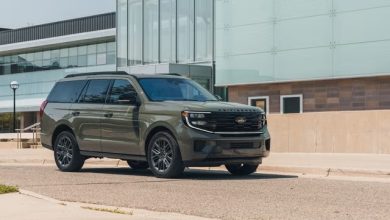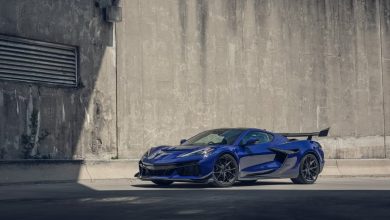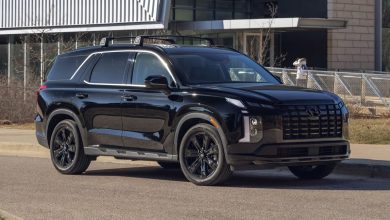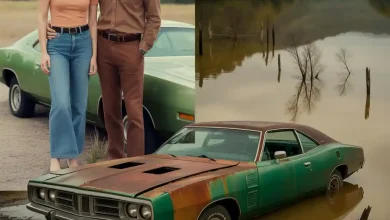Scout CEO Unveils Strategy for New EV & Hybrid SUVs, Confirms Future Three-Row Model
The revival of the iconic Scout brand by the Volkswagen Group is one of the most anticipated automotive relaunches in recent memory. But it's happening in a turbulent environment of shifting EV incentives, tariffs, and economic uncertainty. However, according to Scout CEO Scott Keogh, the brand's strategy was built from the ground up to thrive in exactly these conditions.
In a candid discussion, Keogh laid out a confident vision for Scout's future, touching on everything from pricing and powertrains to a showdown with dealers and a clear roadmap for what comes next after the brand’s initial launch.

"Built in America": A Strategy to Sidestep Headwinds
A core pillar of Scout's strategy is its commitment to domestic manufacturing. By establishing a new factory in Blythewood, South Carolina, the company has positioned itself to navigate the current "America-first" political landscape.
"We're able to operate in this current environment because we're set from the ground up to build in America," Keogh stated. This insulates the brand from many import tariffs and geopolitical pressures.
Crucially, Keogh revealed that the recent elimination of federal EV tax credits was never a concern. "The business case never had the incentives in it," he said, explaining that with a product launch in 2027/2028 and incentives ending in 2032, it would have been foolish to build a "50-year factory" based on a four-year window of subsidies.
The First Wave: The Scout Traveler SUV and Terra Pickup

Scout will re-enter the market with two models: an all-electric SUV (the Traveler) and a four-door pickup truck (the Terra). Both will also be available with a series plug-in hybrid (PHEV) powertrain, a critical option for buyers not yet ready to commit to a full EV.
The target starting price for these rugged vehicles is around $60,000. To meet that price point, Keogh confirmed there will be a simplified entry-level model. "We'll want to… get back to a real simplification," he said, suggesting features like a bench seat and a "detox mode" with fewer screens. However, he drew the line at going too bare-bones, confirming there will be no roll-up windows.
Direct-to-Consumer: A Showdown with Traditional Dealers
In a bold move to control costs and the customer experience, Scout plans to sell its vehicles directly to consumers, bypassing the traditional dealership network. This has inevitably led to lawsuits from car dealer associations aiming to block the plan.
While Keogh declined to comment on specific lawsuits, he was resolute about the strategy. "We can execute this model in the overwhelming majority of America," he said, acknowledging that Scout may not be available in a few states that prohibit direct sales. This model, he added, will provide invaluable data to fine-tune manufacturing to meet real-time demand.
What Buyers Want: Early Reservation Data

With 130,000 confirmed reservations already, Scout has a clear picture of initial consumer interest. The data reveals two key trends:
Scouting the Future: A Three-Row SUV and Beyond

Keogh provided a clear glimpse into Scout's future product pipeline. After launching the initial SUV and pickup, which he says compete in a segment representing 50% of the U.S. market's profits, the next logical step is a larger vehicle.
"The next logical move would be to a larger three-row vehicle. So that would theoretically be the next car we’d go to," Keogh confirmed.
Further down the road, he sees potential for a smaller, mid-size vehicle that harks back to the brand's heritage. "If you go back to the Scout 80s, it makes sense for us," he said, referencing the compact competitor to the original Jeep CJ. He was less interested in the sub-$30,000 compact truck market, calling it "not profitable" at this time.
The Volkswagen Connection: Synergies and Opportunities

The new Scout factory and platform offer significant advantages for the entire Volkswagen Group. The South Carolina plant has the infrastructure to eventually double its output to 400,000 units annually, potentially providing U.S. production capacity for other VW brands like Audi or even Porsche.
"Do we have the ability to take on partnerships? Yes. And do we have the ability to expand someday? Absolutely," Keogh concluded, hinting at major opportunities for the Scout brand to become a cornerstone of the Volkswagen Group's American operations.



